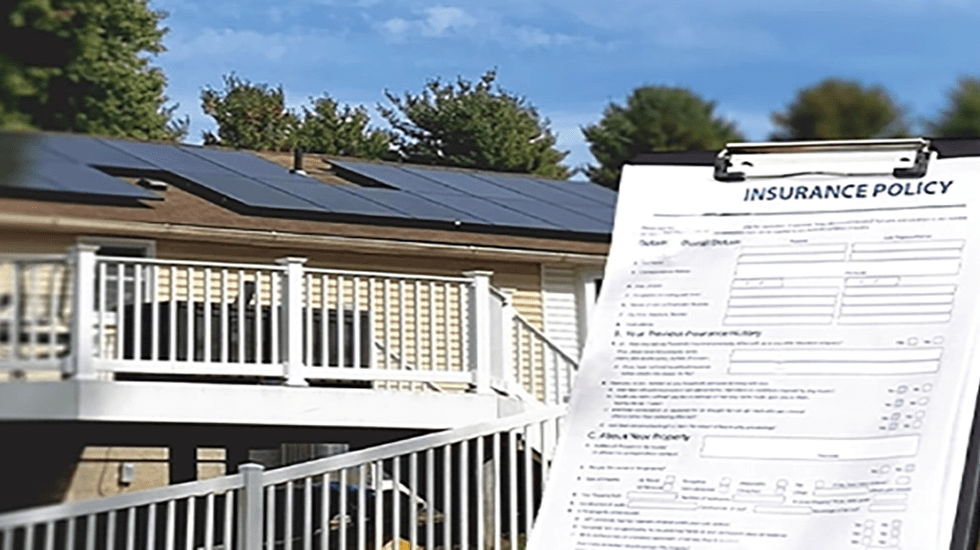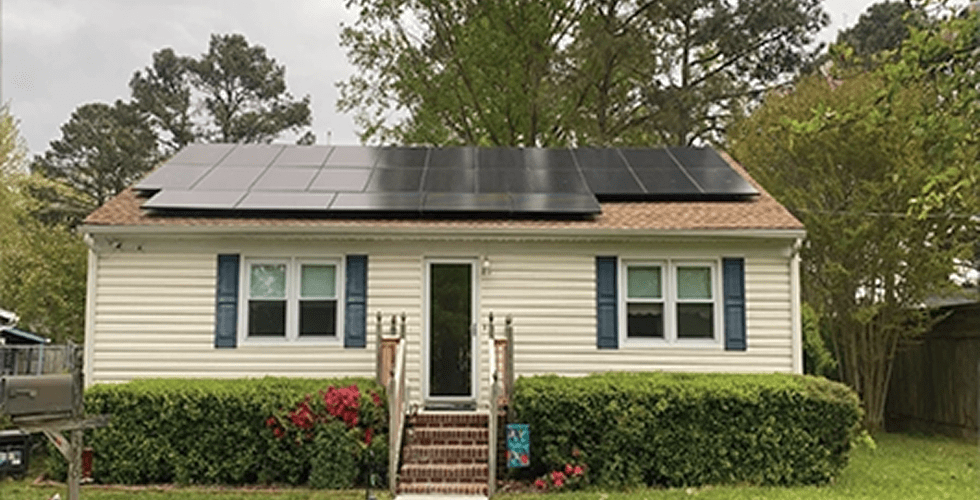Solar Insurance Claim
Protect your solar investment with insurance
for peace of mind!
How Does Solar Insurance Work?
A solar insurance policy requires scheduled payments, usually on a monthly or quarterly basis. It comes into effect after you install a solar system on the home. A typical solar insurance term is 15-20 years and can include solar system maintenance, like quarterly or yearly cleanings and inspections. If the system is damaged or equipment is malfunctioning, solar insurance covers most or all of the repair costs. If the home or business owner owns the system, solar insurance is also their responsibility. Under a solar lease or PPA (power-purchase agreement) where a third party owns the system, they may provide maintenance, but may not cover the cost of replacing equipment, such as the inverter.

How Solar SME Helps You?
We understand that unexpected events can cast shadows on even the brightest days. Damage from a fire, a weather event, a tree limb striking your solar installation, or any other unexpected event can stop your solar installation from producing maximum energy. We have designed a seamless and customer-centric solar panel insurance claims process to hassle free system restoration, ensuring your peace of mind remains as radiant as the sun powering your home. Moreover, we are partnered with best solar insurance company for taking care of your.
Does Homeowners Insurance Cover Solar Panels?
Homeowners solar insurance policies generally cover rooftop solar panels because they are considered a permanent fixture on your property. When installing a rooftop solar system, you should talk with your insurer to see if you need to increase your policy premium and limits. Your location and climate will have a big impact on how much your solar panel insurance premiums will cost. However, insurance does not usually cover ground-mounted solar systems.

Should I Adjust My Homeowner Claim Limit If I Get Solar Panels?
Do I Need A Separate Solar Panel Insurance Policy?
Usually, you need to purchase solar system insurance coverage for systems not installed on your roof, like a solar carport or ground-mounted system. That’s because these systems are not considered a permanent part of your home.
If you live in a region where tornadoes or hurricanes are more likely to occur, you may also need a separate solar insurance policy. This ensures that the full value of the solar installation is covered, even if it is a rooftop system. Research or talk with your insurance carrier to learn about what your home or commercial building insurance policy covers. to better understand what your policy type specifically covers. If your present policy doesn’t cover the solar energy system, you should consider increasing your coverage with an add-on rider. Alternatively, explore a separate solar insurance policy.
For insurance claims or information on solar insurance or maintenance policy for your system, contact SolarSME professionals. We’re happy to assess damage, perform repairs and help you find the best solar insurance companies and claims process.
Solar SME Solar Insurance Claim!
For insurance claims or information on solar insurance or maintenance policy for your system, contact Solar SME professionals. We’re happy to assess damage, perform repairs and help you find the best solar insurance companies and claims process.
Find the Right Solar Insurance Plan with Us!
Frequently Asked Questions
Since solar panels can be a big investment, you should probably confirm that your policy provides adequate coverage to assist with repairs in an emergency. To determine whether you wish to make any changes, your insurance provider can assist you in reviewing your current coverage.
High-quality solar panels are highly resistant to hail damage and have been tested to withstand such extreme weather events; most homeowners’ insurance covers hail damage to solar panels put on rooftops.
Solar panels are usually covered as part of the insured property by commercial property insurance, which covers damage from dangers like windstorms, fires, and vandalism.
Your installer will tell you how much your system will cost when you pay for it, as the cost depends on its size and equipment.
Your home policy’s dwelling coverage may cover the cost of replacing or repairing any solar panels that are positioned on your roof in the event that a covered danger damages them.
Standard homeowners’ plans cover the majority of rooftop solar energy systems, so your insurance coverage remains unchanged. To cover the system’s cost, you would have to extend the coverage for your house, which could result in a higher premium.
Despite being low-risk investments, solar panel systems still need insurance to protect against theft or damage.

